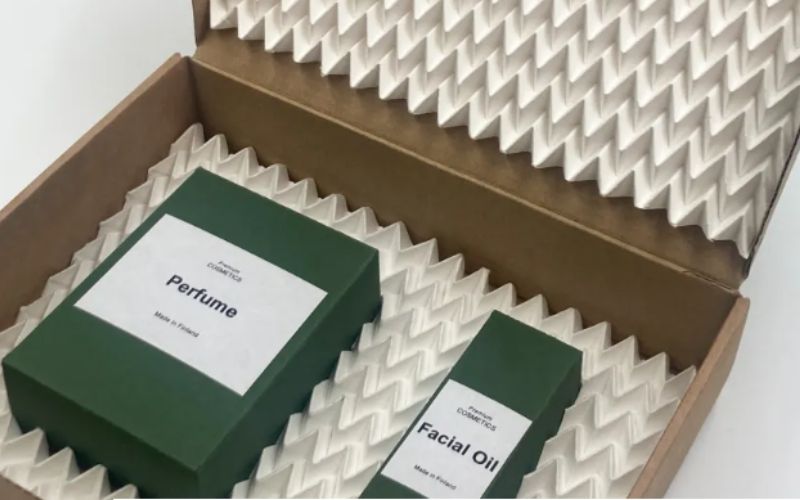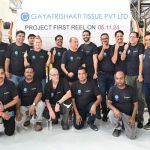The two-phase project began with designing a machine to fold the origami cardboard. The outcome has been a resounding success, leading to new applications of cardboard to manufacture packaging material that is flexible, durable, versatile and sustainable.
Dec 3, 2024

VTT Technical Research Centre of Finland, in collaboration with Aalto University and Finnish industrial partners, has developed a new technology for shaping cardboard in a unique continuous process to create reel-to-reel origami-inspired structures for fibre-based packaging materials.
The origami folds have the capacity to yield entirely new properties from cardboard. The structures’ light weight and durability provide an excellent and visually appealing alternative to protective packing materials like plastic and expanded polystyrene. The aesthetics of the material have also garnered interest from designers.
Watch: In Pursuit of Lesser Water Footprint
Involving 13 different companies, organisations, and universities at various stages, the FOLD and FOLD2 projects are keystones in a quest to renew and expand how cardboard is used as a packaging material.
The two-phase project began with designing a machine to fold the origami cardboard, with the next phase of the project set to begin testing other materials. The outcome has been a resounding success, leading to new applications of cardboard to manufacture packaging material that is flexible, durable, versatile and sustainable.
“The technology of FOLD is completely unique in the world. Origami folding transforms cardboard into a flexible, protective, and visually appealing material unlike anything that’s previously been available for industry-wide production. The technology we’ve developed also has the capacity to produce foldable materials from recycled goods,” says Jarmo Kouko, creator of the FOLD project and Research Team Leader at VTT.
Also Read: Pakka to Open USD 250 Million Food Packaging Solution Plant in Guatemala
Kouko originally drew inspiration for the project while attending a packaging industry conference on various folding techniques. Traditionally, origami is handcrafted, with its intricate and complex folds often taking several hours to construct by hand. This intensive process would usually be a limitation for commercial packaging, but Kouko was inspired by the idea of mechanical folding that could refine materials into protective, lightweight, and visually striking forms.
The solution mechanically replicates the hand-folding process, adding the benefit of consistent precision and quality that would be difficult to achieve by hand. Since the technology can be applied to a range of commercially available paperboard grades, it requires no changes in the materials used.



